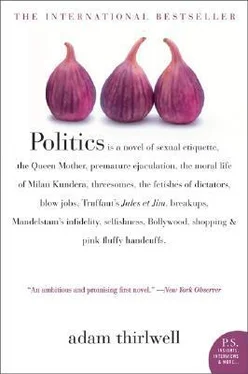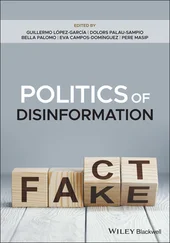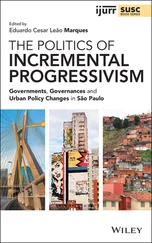Adam Thirlwell - Politics
Здесь есть возможность читать онлайн «Adam Thirlwell - Politics» весь текст электронной книги совершенно бесплатно (целиком полную версию без сокращений). В некоторых случаях можно слушать аудио, скачать через торрент в формате fb2 и присутствует краткое содержание. Год выпуска: 2004, Издательство: Harper Perennial, Жанр: Современная проза, на английском языке. Описание произведения, (предисловие) а так же отзывы посетителей доступны на портале библиотеки ЛибКат.
- Название:Politics
- Автор:
- Издательство:Harper Perennial
- Жанр:
- Год:2004
- ISBN:нет данных
- Рейтинг книги:3 / 5. Голосов: 1
-
Избранное:Добавить в избранное
- Отзывы:
-
Ваша оценка:
- 60
- 1
- 2
- 3
- 4
- 5
Politics: краткое содержание, описание и аннотация
Предлагаем к чтению аннотацию, описание, краткое содержание или предисловие (зависит от того, что написал сам автор книги «Politics»). Если вы не нашли необходимую информацию о книге — напишите в комментариях, мы постараемся отыскать её.
Moshe loves Nana. But love can be difficult — especially if you want to be kind. And Moshe and Nana want to be kind to someone else.
They want to be kind to their best friend, Anjali.
Politics
Politics — читать онлайн бесплатно полную книгу (весь текст) целиком
Ниже представлен текст книги, разбитый по страницам. Система сохранения места последней прочитанной страницы, позволяет с удобством читать онлайн бесплатно книгу «Politics», без необходимости каждый раз заново искать на чём Вы остановились. Поставьте закладку, и сможете в любой момент перейти на страницу, на которой закончили чтение.
Интервал:
Закладка:
Anjali was shooting another advert for Johnson’s Baby Powder. The concept for this advert was to re-enact scenes from famous films. Anjali was in the final famous scene from Casablanca.
For those of you not in the know, the final scene of Casablanca hinges on Humphrey Bogart, playing Rick, making the stern and noble decision that Ingrid Bergman, playing Ilsa Lund, should leave Casablanca with her emigre Jewish husband, called Victor Laszlo, played by Paul Henreid. It is a stern and noble decision because Rick and Ilsa are in love. It is a film, then, that romanticises generosity. As the plane leaves, with Ilsa and Victor safely on board, Rick turns to Captain Louis Renault, played by Claude Rains, and says to him, ‘Louis, I think this is the beginning of a beautiful friendship.’ That is one of the film’s two famous lines. The other line is ‘Play it again, Sam’ — except, as all you film connoisseurs know, there is no such line in Casablanca .
In this reconstruction, Anjali was standing in for Ingrid
Bergman. And the plot of the advert was this. Anjali Bergman was tempted to stay with another, lesser brand of baby powder. But affairs were not moral. They were not acceptable. Every baby should resist the temptation to leave Johnson’s for a new thrill. So in the end the plane soared away with Anjali the baby safely on board. ‘Johnson’s and baby — a beautiful friendship.’ That was the advert’s strap line.
And I know. I know this was not accurate. I know that the beautiful friendship was not between Ingrid Bergman and Paul Henreid. It was not even between Ingrid Bergman and Humphrey Bogart. It was a homoerotic friendship. But that is not my fault. Blame Johnson’s Baby Powder.
Interpretation is difficult. So often, interpretation is personal, subjective. It is not just the makers of Johnson’s Baby Powder adverts who get things wrong. Anjali could get things wrong as well.
As Anjali lit and smoked her way through two Marlboro Lights, she remembered the whole delightful plot of Casablanca. It was the story of a famous threesome. It was a film about generosity. As she smoked, Anjali realised that she was Rick, she was Humphrey Bogart. So Anjali should behave like Rick. She should give Nana up. It was true, she did not want to give Nana up — but if she did not, well what then? Nana might leave Moshe for her. And Anjali did not want Nana to give Moshe up. It was difficult for Anjali — giving Nana up — but it would have been much more difficult watching Nana give up Moshe.
It was a tragedy. But tragedies, thought Anjali, were noble. It moved her so much that she almost began to cry, on a fire escape, near Old Street.
As for me, I have my own theory about the end of
Casablanca. I do not think it is a tragic ending. Me, I think it is a happy ending.
Victor Laszlo was a Czech and Jewish resistance fighter. He was a hardworking and courageous anti-Nazi intellectual. I do not think it was a tragic ending at all. Victor was fleeing for his life, and we are meant to feel sad that his wife has stayed with him instead of with the morose owner of an ex-pat bar in Casablanca. Now personally I do not think that is sad. I do not think love is this important. I do not think that melancholy is that attractive. There is no need to romanticise the love triangle.
4
As it happened, Anjali did not need to worry about the tragedy inherent in a love triangle, because Nana was not considering leaving Moshe. At this point, there was no tragic threesome, because Nana did not think she was in love with Anjali. Nana was in love with Moshe. She was in love with Moshe and she had been unfaithful once. That was Nana’s position so far. Rather than feeling torn, she was just feeling guilty.
I do not think she needed to feel guilty. She was not having an affair. And it was not as if the situation was entirely her fault. Even Moshe could have foreseen this. But Nana thought it was all her fault, and this was making her nervous. It was making her cry.
A few evenings after her lesbian sex scene, Nana was crying. Actually, crying had become a feature for Nana. It had become regular. But I will go with one night in particular. Nana was in bed with Moshe and her toy leopard. She was crying soft grey mascara tears. These tears blackened the tip of the toy leopard’s head. They smudged its sewn- in lines for claws. And while she cried, Moshe, who was almost asleep, cupped her from behind. He edged his penis into the fur of her bottom, and made no noise. It was three in the morning.
Moshe tried to wake up.
There are all sorts of funny moments when someone is crying in the middle of the night. There are all sorts of droll ironies. This might sound heartless and cold but really it is true.
Nana was feeling nervous. Meanwhile, Moshe was simply confused. His sensible girlfriend Nana had recently become tormented. You see? That’s one droll irony already. She was not tormented at all — she was just nervous.
‘Wha?’ said Moshe. He was sleepy, sleepy. ‘Yll be betten the mornung,’ he drawled, touching the tips of her shoulders, softly. Then he let his hand drop. No question, Moshe was tired. Inside his head Moshe was drifting. But Nana was awake. Moshe said, ‘Whas the matta?’ He felt helpless. And the reason he felt helpless, thought Moshe, was that he was desperate with sleep.
But sleepiness was not really why Moshe felt helpless. I happen to know an extra fact. He felt helpless because Nana was crying. That was it. It was the simple fact of her crying. Due to some internal inadequacy, crying always left Moshe stymied. There are limited feelings, after all. You can only feel what you feel. It is not very fun, but that is how it is. It is very difficult, not repeating yourself, it is very tricky and not very fun.
It was not very fun for Moshe.
He slumped back, caring, useless. He listened to Nana.
He said, ‘Doll maybe yshoud, mayb, o Iloveyou, you know?’ ‘Nana, Nana,’ he crooned, a matinee idol at three o’clock.
Nana tried. She said, ‘Umsorri I’m doon this. Iss just. Oh sorry.’
Moshe thought that this might be a rest. This might be the prelude to quietness, thought Moshe. When she understood the value of sleepysleep sleep. ‘Dunma,’ he said, ‘it don matta.’ But no. It was not the prelude to quietness. It was not the prelude to sleep. It was the prelude to trying again.
As Nana mumbled and chatted, Moshe fretted. He tried to see the invisible time, ticking somewhere on the bedside table. It must be nearly dawn, worried Moshe, it must be and if it was then Moshe was a destroyed tired man. He wondered if he could remember any of his lines. He tried to run through his lines. In his hysteria, Moshe could not remember any of Slobodan Milosevic’s lines. He was panicking and blank.
It was the middle of the night and Moshe was scared. He felt unsafe.
Whereas when he was a boy and woke up in the middle of the night, scared by the shapes of his objets trouves stored in a Homebase cabinet, Moshe knew for sure that he was safe. When he was a kid, Moshe was not distressed by his jumping beans, or his Russian doll, or his one-inch wooden elephant, which was orange with black spots. He was not afraid, because there was a ladder in the corner of the room. And all he had to do was stand on it and paradise was just up there, on a ledge around the walls two inches off the ceiling, where a line of wooden painted animals glistened in the dark. And if this failed, he knew that his mother would be guarding him, in her promised busby and red suit with gold new buttons, just outside the door.
But now it was the middle of the night and Moshe felt as if he were alone. He felt old. He was twenty-six years old. And his girlfriend called Nana was crying. ‘Iss jus hol me?’ she said. ‘Please hol me, please.’
Читать дальшеИнтервал:
Закладка:
Похожие книги на «Politics»
Представляем Вашему вниманию похожие книги на «Politics» списком для выбора. Мы отобрали схожую по названию и смыслу литературу в надежде предоставить читателям больше вариантов отыскать новые, интересные, ещё непрочитанные произведения.
Обсуждение, отзывы о книге «Politics» и просто собственные мнения читателей. Оставьте ваши комментарии, напишите, что Вы думаете о произведении, его смысле или главных героях. Укажите что конкретно понравилось, а что нет, и почему Вы так считаете.












